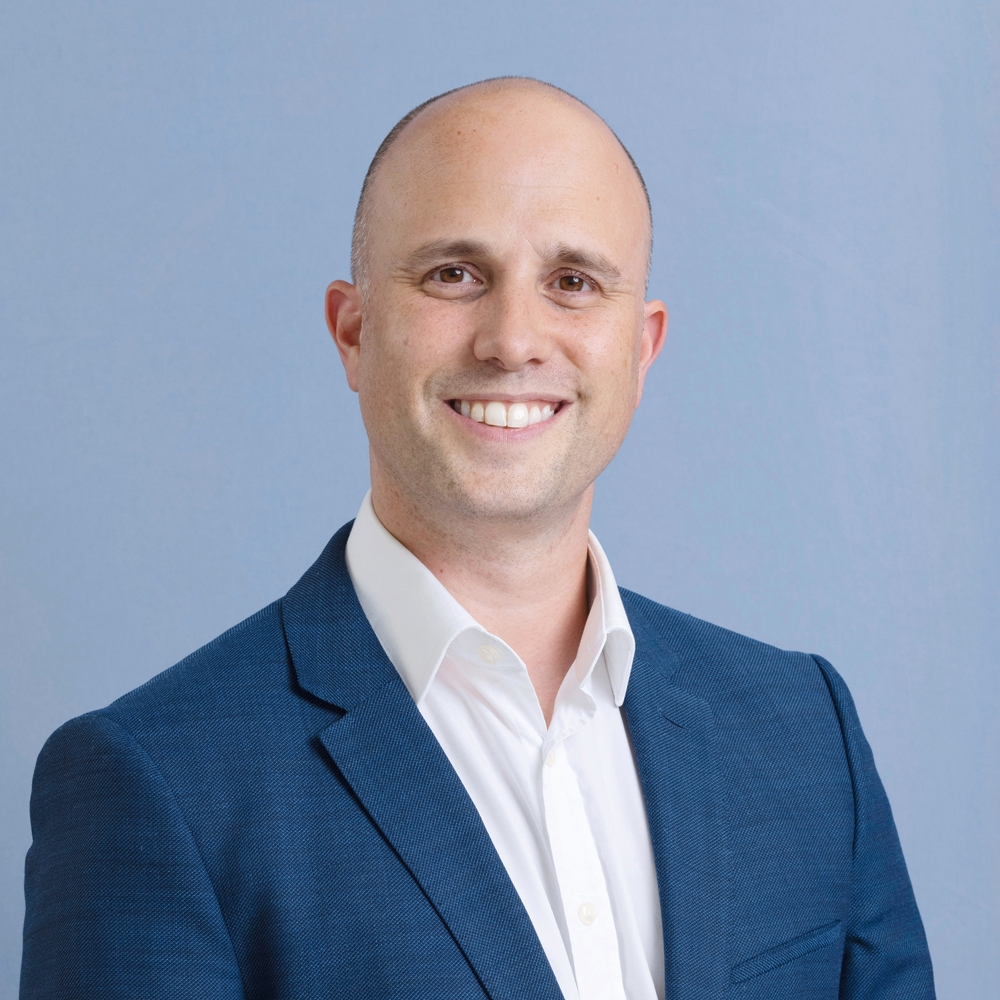Harnessing technology and complex claims expertise to streamline public sector insurance claims management can save money for the public purse, says Pro Global Head of Specialist Claims Michael Mackenzie
Navigating and streamlining insurance claims is a complex process for the public sector and local authorities. Having appropriate insurance arrangements is essential so they can deliver services effectively and provide resilience to this critical sector of the economy.
However, unlike central government, local authorities must work independently to manage the risks they face and rely on the insurance industry for support. The fragmented nature of the market presents many challenges and can drain resources across various disciplines, including risk management, data quality, management information, and duplication of effort and resources.
Integrated “Single” platform
An innovative approach is necessary to control costs and add tangible value, and this is where a long-term trusted partner can help. Pro Global provides an integrated public sector claims management platform that enables key stakeholders to operate in a shared platform, presenting a single version of the truth, reducing duplication, leveraging automation, strengthening cyber security and data protection (by reducing the need to share sensitive materials outside the secure domain).
Our platform is backed by a team of insurance claims experts who can help simplify the complexities of public sector insurance claims and drive better outcomes. Pro Global’s technology-enabled capability and experience can save money for the public purse by through specialist claims strategies being brought to bear, leveraging automation, and informed by enhanced data insights, ensuring claims strategies are appropriate and effective.
Local authorities face significant challenges every day, with the continuing need to reduce costs and increasing pressure from central government for public and regulatory bodies to provide high levels of service at reduced cost. Pro Global understands the importance of providing claims management expertise in a way and at a cost that delivers effective results and controls overall spend.

Reducing the cost of claims
Our expertise spans matters concerning Employers’ and Public Liability (including complex disease, illness and sensitive abuse/social care claims), Professional Indemnity, General Liability, Healthcare, Legal Expenses, Motor, and Property insurance. Our claims ethos is to investigate the right claims from the desktop and instruct field force adjusters only where necessary, working closely with clients in partnership to reduce the total cost of claims.
Pro Global’s proprietary claims management software Pelican also enables us to help local authorities monitor their exposure, and offer security against growing numbers of cyber attacks and other emerging risks.
Communication is key when it comes to claims. Working with an established and trusted partner like Pro Global can help local authorities and the public sector navigate and streamline the complex liability insurance claims they face. Our innovative approach can save money for the public purse and drive better outcomes by providing an integrated public sector claims management platform backed by a team of insurance claims experts.

Name: Michael Mackenzie
Job title: Head of Specialist Clams
To speak to the Pro Global team please feel free to reach out to us at:

To contact our PR team directly please use the link below
Gordon Burrows, Pro MGA Global Solutions Head of Solutions and Compliance, shares his thoughts on how technology is shaping the frontier of insurance and helping drive development for MGAs
There is no denying that technology has changed the way insurers and MGAs operate, making processes smoother and more efficient; however, it is the continued pace of development of technologies such as artificial intelligence (AI), machine learning, the Internet of Things (IoT) and the collective array of smart devices that are causing the most profound and swift changes to our sector, especially when it comes to underwriting.
For the first time ever, insurers are able to analyse data in real-time – and this breakthrough is now becoming mainstream across insurance classes. From car telematics to wearable tech like smart watches, and IoT devices in homes and commercial buildings, up to drones in satellites: the once one dimensional world of data has been transformed into something that now allows insurers to better understand their customers and their risk profiles, meaning products and services can be targeted and priced more accurately.
The impact of these technologies doesn’t stop there however; they are fundamentally transforming the way insurance works. Just take the rise of parametric insurance products, which automatically pay policyholder claims when a predefined event, such as a hurricane or earthquake, occurs.
Then there are innovations such as digital platforms, which are enabling MGAs to partner seamlessly with different distribution channels and reach a wider audience. Such collaboration means customers now have prime purchasing power, not to mention access to more personalised products and services via self-serve functions or at the point of sale, as is the case with embedded insurance.

Hungry for more
But this isn’t the only development that has been noted as of late. As current reports indicate, there is an industry-wide appetite for risk capital, not to mention an interesting shift between insurers and reinsurers who are now being considered as one risk capital partner. From an MGA perspective, this alignment presents an opportunity for them to write more business; it also means that the amount – and quality – of data will be more free flowing; an undeniable bonus for the whole insurance sector.
With all these benefits combined, the timing to start an MGA simply couldn’t be better. But while the opportunities are ripe for the taking, to succeed in such a complex and continually evolving landscape, MGAs will need all the support and resources that they can get – something which Pro MGA Global Solutions is proud to offer.
With our ability to provide start-ups and entrepreneurs with access to risk capital, not to mention our wide knowledge of different markets and regulations, it is little surprise that the Pro MGA model is proving popular. We are a natural partner so, whether you are looking for regulatory, compliance or operational support, our expert team can help you bring your ideas to life. Contact us today to find out more: Pro MGA

Name: Gordon Burrows
Job title: Head of Solutions & Compliance
To speak to the Pro Global team please feel free to reach out to us at:

To contact our PR team directly please use the link below
Backed by A+ rated Lloyd’s and companies market capacity, Nirvana Risk Partners is a specialist underwriting team focused on the media, technology and cyber sectors targeting organic and inorganic growth to fuel its expansion
London, 17 April, 2023: Pro MGA Global Solutions, the independent managing general agent (MGA) incubation division of global re/insurance trusted guidance provider, Pro Global Holdings Limited (Pro), is excited to announce its incubation partnership with specialty MGA Nirvana.
Nirvana is led by CEO Kabir Chanrai and Executive Chairman Rob Jones, together with Head of Europe Thomas Mannsdorfer and experienced Sector Underwriter Glenn Crickmar. The business was established in 2017 as part of Castel Underwriting agencies (Castel), and the incubation partnership with Pro MGA Global Solutions follows Nirvana’s successful management-led buyout (MBO) from Castel in March 2023.
Nirvana’s insurance portfolio encompasses media liability; film and television liability; technology liability; and cyber liability developed for all sizes of business from SMEs to larger corporates. Nirvana has ambitious plans to grow into a diversified service- and underwriting-first MGA through hires and acquisitions of existing MGAs.
Pro MGA Global Solutions will provide regulatory, operational and technical support to help the team at Nirvana continue their successful growth.
Kabir Chanrai said: “Nirvana’s goal is to deliver insurance solutions that span the full risk spectrum, and as we move onto the next phase of our growth, we are focused on expanding the innovative global package of media and technology liability products we have developed through both organic and inorganic channels.
Following the buyout, we are looking for a seamless transition to an independent MGA, and we are very pleased to be partnering with Danny and team, who I’m confident will apply their leading technical expertise to continue to enable the global vision of our business.
This is a very exciting time to be launching Nirvana independently, and I’m looking forward to driving ahead with our underwriting first and service first mindset. With Pro MGA Global Solutions’ expert support, we can stay focused on pursuing our long-term growth strategy and delivering valuable solutions to our clients.”
 Danny Maleary, CEO of Pro MGA Global Solutions, added: “It’s a pleasure to work with the entrepreneurial Nirvana team who have so successfully built out the business focusing on innovative and profitable cyber, media and technology liability products.
Danny Maleary, CEO of Pro MGA Global Solutions, added: “It’s a pleasure to work with the entrepreneurial Nirvana team who have so successfully built out the business focusing on innovative and profitable cyber, media and technology liability products.
Here at Pro MGA Global Solutions, we have extensive experience of the Lloyd’s and London company markets across a wide range of disciplines in brokers, service providers and insurers, as well as highly relevant experience in the MGA arena across the companies market and international platforms.
I’m looking forward to bringing the full strength of our network to bear to support the strong growth that is on the horizon for Nirvana in a sustainable way by providing a platform with full regulatory oversight and operational support. This will empower the high caliber Nirvana team to focus on what they do best: developing innovative products that help solve real world challenges for their clients.”
…………………………………………………………………………………………………………………………………………………………….
About Nirvana Risk Partners
Enjoying long standing partnerships with some of the most recognisable global media and technology organizations, Nirvana are leading experts in media and tech insurance in London and internationally. Nirvana Risk Partners was founded by Rob Jones in 2017 as a trading division within the Castel Underwriting Agencies platform.
Based in the London Insurance Market, Nirvana’s underwriting capacity is provided by A+ rated Lloyd’s syndicates and insurance company capacity.
Nirvana’s infrastructure is built upon the tried-and-tested foundations of the Castel MGA underwriting platform.
For more information, please visit: http://www.nirvanarisks.com/
About Pro MGA Global Solutions
Pro MGA Global Solutions is an independent incubation partner that scales with clients’ ambitions. Pro MGA Global Solutions offers both entrepreneurial support – including set up, guidance and regulatory oversight that enables MGAs to flourish – together with operational support including underwriting oversight expertise and regulatory platforms that enable MGAs to trade.
For more information, please visit: https://pro-global.com/pro-mga/
To speak to the Pro Global team please feel free to reach out to us at:

To contact our PR team directly please use the link below
This article is published with the kind permission of Reinsurance News
There has been a significant increase in reinsurers’ appetite wanting to specialise in reinsuring insurer’s delegated authority portfolios. With both parties aligning their interests they have now effectively become one risk capital partner, a change that Pro MGA Global Solutions (Pro MGS) CEO, Danny Maleary, has seen starting to develop and “long overdue”.
Pro MGS, part of Pro Global, is a Managing General Agency (MGA) incubation partner which provides a platform and services to assist new and developing MGAs, offering a faster and more cost-effective way for them to get up and running.
In conversation with Reinsurance News, Maleary shared his views regarding the current state of the MGA market, as well as the growing changes he has observed are developing in the market involving reinsurers.
“Generally speaking, the MGA market is robust, as robust as I’ve ever known it to be. It continues to be so despite what’s going on in the world, from an economical perspective,” said Maleary.

“I’m seeing a lot of healthy, good quality opportunities, very thought through and measured in their approach. Very data driven, very thoughtful and mindful of delivering profitability to all their key stakeholders. I think that the sector at the moment continues to grow and we’re seeing a continued uptick of opportunity across the globe.
“This is not just in the UK, but also Europe, the US and other territories as well. We’re also finding more and more, perhaps underserved countries, starting to embrace the MGA to enable insurance products to be obtainable by customers. These are exciting times!”
The resilience of MGAs is thanks to their flexibility, Maleary explained, as they have to be nimble and able to change and mirror both what the market and customers want and need.
Over the last five years, he has also seen reinsurers participating more in the creation of MGAs, when traditionally, they would usually not be as involved.
Maleary said: “Lately, when I look at some of my MGA clients, a number of them also have got reinsurance platforms. They’re confident that they have not only created MGAs, the vehicle to deal with the customer, but that they are also creating a reinsurance platform as a follow reinsurer to the lead reinsurer that supports their portfolio which’s being insured by the insurer.
“That has started to drive, I think, a significant appetite from a number of reinsurers wanting to specialise in reinsuring insurer’s delegated authority portfolios. This year in particular, I’ve seen quite a few opportunities where the insurer, with their reinsurer, has come to us with an MGA opportunity.
“So the MGA, the insurer and the reinsurer are all aligned and it’s quite interesting to see how that is starting to develop now, whereas perhaps six or seven years ago it was about just the MGA and the insurer, the reinsurer was over there somewhere, never really getting that involved.”
Maleary believes that this change has happened because reinsurers want to do more business in the delegated authority space.
He noted that, especially towards the end of last year, reinsurers appear to have been stimulated to think a little bit more laterally, and more focused around the world of delegated authority (MGAs) to enable them to think more strategically around what they should be doing with their insurer partner.
“This is quite exciting, because now, for once, I’m in a room not just with my MGA client and the insurer that’s supporting them, but also the reinsurer. So we’re all aligned here in terms of the risk appetite and the quality of data that flows from the MGA through the insurer to the reinsurer,” Maleary explained.
“This real alignment of interest, even though it’s in its early days, is building up. And it’s not that insurers and reinsurers are blending together, but are considered as one risk capital partner.
“As they align they are enabling the MGA to possibly write more business because the reinsurer partner of the insurer that supports the MGA is happy for the insurer to, perhaps, quota share more out to the reinsurer. Therefore to be able to write more business. So I see more reinsurers now talking to me about MGAs.”
By working together as one, reinsurers also bring with them their data and analytical side, with which they have more experience compared to insurers, according to Maleary.
“Averaging years and tens of hundreds of years perhaps, of reinsurance knowledge and data management right at the front end, only enhances probably everyone’s journey. Which is another factor that I see why reinsurers have started to get more and more involved.”
“Therefore, bringing them together as one risk capital partner enhances the MGAs proposition and relevance, and allows all parties to be more successful,” he highlighted.
The CEO added: “Insurers and reinsurers have strong points and weak points, but collectively they are much stronger rather than working as individuals. That is where I’m seeing significant opportunities now which bring significant value-add to the market.
“Historically, the insurer-reinsurer relationship was really geared towards catastrophic type of losses or catastrophe type of businesses. Currently I’m sort of looking at what that was like, and I’m almost seeing a version of that and a reiteration of that in the delegated authority space.
“This is quite refreshing and I do feel that as we go through 2023 and into 2024, even though we are in early stages, I can see more and more of that taking place. I can see the reinsurer playing a much stronger and important part in the delegated authority space than they do today.
Maleary concluded: “Change is happening now, it has been long overdue; and I believe that in the next two to five years this is going to become the norm. Change is also bringing some interesting thought provoking ideas, some great innovations and great entrepreneurialism, and some great partnerships.”
The original article can be accessed here.
This article was published in The European Financial Review and is shared with the kind permission of the publication.
———–
The insurance industry has a relatively straightforward role: to build the resilience of society by providing a financial backstop for individuals and businesses if the worst should happen and they need it most. Putting this into practice in today’s landscape, however, isn’t always a straightforward exercise.
From the impacts of economic and social inflation on both an insurer’s financials and the cost of the claims they face, the consequences of the climate crisis, and the insurability criteria of emerging risks such as cyber, there are numerous headwinds that are impacting the outlook for this economically critical sector.
To overcome these challenges, insurers are practising what they preach, and focusing on their own resilience – from operational resilience to financial and regulatory resilience – and there is a concerted drive in the industry to embed the right tools and skilled personnel exactly where they are needed within an insurance operation.
The starting point for any insurer on this road to heightened efficiency has to be that of regulatory resilience, especially in the form of environmental, social and corporate governance (ESG). While ESG has been on the agenda for some time, we are now entering a period of increased scrutiny from multiple stakeholders, where ESG credentials are being likened to that of the historic Kitemark accreditation. Not only do they act as a reflection of your company ethos and culture, but they reflect the behaviours, actions and ethics of your clients and business partners as well.
The talent war
The benefits of adopting ESG measures should not be underestimated. For those seeking to work with the very best companies, not to mention the very best of the talent pool, meeting ESG requirements is critical.
As many will note, encouraging new talent into our industry is an uphill struggle. This is because our world is changing; it has become more complex, more focused on technology, and as a result the traditional insurance model has evolved. Underwriting is now intricately woven with coding, data is now science-based, and risk mitigation is interlinked with predictive analysis.
The rise of technology has also flattened many steps for career progression, not only by removing the need for separate divisions within corporate structures, but by reducing employee numbers as well.
The combination of all these elements means insurers need to do all they can to secure their future workforce, and adopting ESG standards is the most obvious step to achieving this. The fact of the matter is that today’s generation is seeking employment with firms that are ethical and honest. A fancy website won’t cut it anymore; they want substance, transparency and opportunity. And let’s face it, having ESG at the heart of your business operations is simply good practice anyway.
No company is an island
The changing nature of many company blueprints isn’t the only structural shift happening in the industry. The rise of insurtechs and the need for technology to achieve a step-change in customer delivery in a cost-effective way is one of the many battlegrounds the industry still has to master. To succeed, insurers need to be nimble in the face of customer demands, and for this they need the right technology. No matter what size territory you are working in, only those businesses which are adaptable and have speed to market will succeed, and partnering within a digital ecosystem is a tried and tested method to ensure this outcome.
A fundamental part of the industry’s digital transformation – a move propelled by the pandemic, the changing nature of consumer buying habits and the rise of the insurtech – digital ecosystems provide a platform for insurers, tech providers and MGAs to work together, to enable access to new markets, territories, technology and distribution methods that would have otherwise been out of reach.
Unfortunately, the current turmoil surrounding insurtech investment stemming from March’s collapse of Silicon Valley Bank is likely to impact the success of new insurtech start-ups for at least the coming months. However, there are many established insurtech businesses that still enjoy sustainable growth in the market and are committed to remaining crucibles for innovation.
In time, the insurtech sector and its investors will bounce back. But, for insurers and insurtechs navigating the choppy waters ahead, seeking out trusted and established ecosystem partners who know the market and can offer such varied and expert support from different practitioners from both within and outside the industry is key. Whether in pursuit of new products or distribution models for brokers and MGAs, ecosystems essentially allow insurers to be nimble in the face of changing consumer demands.
One such area gaining particular traction in this field is embedded insurance. Made possible by technology and the increasing uptake of smart devices, such as smartphones, watches and vehicle telematics, this product harnesses the power of interconnection, real-time data, and the Internet of Things.
And this isn’t the only way that technology is helping the sector. The adoption of technologies such as automation, artificial intelligence and machine learning are streamlining operational processes, which is helping remove frictional costs. Considering the insurance market picked up a US$120 billion claims bill in 2022, such savings will surely be welcomed, and could eventually be iterated back as a better price for customers.

Focus fuels success
These new technologies and product innovations, such as embedded insurance, present both opportunity and threat for insurers. Only by delivering enhanced new offerings to clients will the sector remain relevant, and therefore secure its survival. But while the need to evolve and embrace change is clear, the industry has to stay cautious in its approach but at the same time cannot afford a zero tolerance to risk, as innovation arises at the risk frontier. Regulations will undoubtedly play a significant role here, shaping new and future revolutions, protecting both customers and insurers.
But that doesn’t mean we should be fearful of change and stop innovating. The way we see it, the future of the industry will be a combination of partnering and technological change. We must continue to evolve and innovate, and be clear on why we are doing it. We also need to recognise that we can’t be good at everything, and ensure we are open to bringing the right people on board and partnering with the right ecosystems. Only by doing this will we be able to deliver the right products, to the right customers, at the right price, and at the right time.

Name: Steve Lewis
Job title: CEO and Group Head of Claims
To speak to the Pro Global team please feel free to reach out to us at:

To contact our PR team directly please use the link below
As the Head of UK Specialty Claims at Pro Global, I would like to shed some light on how local authorities and public sector bodies can save money for the public by simplifying their insurance claims processes.
Having appropriate insurance arrangements is crucial for the public sector to deliver services more effectively and to provide resilience to this critical sector of our economy. However, managing insurance claims in the public sector can be a complex and costly process. Unlike central government, local authorities cannot rely on the strength of the public sector balance sheet to finance insurance and insurance claims – instead, they must work independently to manage the risks they face, relying on the insurance industry for support.
Effective controls and streamlined processes are therefore essential for public sector bodies and local authorities to get the most out of their insurance arrangements and avoid financial losses or delays in claims.
The public sector faces ongoing financial pressures, which leads to a heightened need to focus on driving operational efficiencies and resilience. However, the fragmented nature of the market presents many challenges and can drain resources across various disciplines including risk management, the quality of data and management information, and duplication of effort and resources. To address these challenges and achieve effective claims management, an innovative approach is necessary to control costs and add tangible value.
The rise of cyber and data security risks also presents a significant challenge for the public sector, and a lack of a robust digital strategy can hinder effective risk management. The solution lies in an integrated public sector claims management platform that presents a single version of the truth and offers reduced duplication, automation, and cyber security.
This is where Pro Global can help as our claims management platform is backed by a team of insurance claims experts. Our platform is secure by default and reduces the need to share sensitive materials outside a secure domain, while providing automation and enhanced data insights to help users make informed decisions. The combination of our technology enabled capability and our experience team, which has a long history of transforming claims management processes in the insurance industry and can help simplify the complexities of public sector insurance claims, drive better outcomes and save money for the public purse.

Name: Mike Mackenzie
Job title: Head of Specialist Claims
To speak to the Pro Global team please feel free to reach out to us at:

To contact our PR team directly please use the link below
London, 1st March, 2023: Pro MGA Global Solutions (Pro MGA), the independent managing general agent (MGA) incubation division of global re/insurance trusted advisor Pro Global Holdings Limited (Pro), is pleased to announce that it is extending its partnership with UK-based Calibrant Limited (Calibrant)
Calibrant specialises in the portfolio management and oversight of delegated authority business, partnering with both carriers and MGAs with the aim of creating and maintaining long-term, multi-year capacity provision.
Pro MGA Global Solutions has been working with Calibrant since its launch in 2021 providing the turnkey solution and appointed representative status that supported its successful and compliant growth to date.
In February 2023, Calibrant received full FCA authorisation, with the Pro MGA team providing support throughout the process and enabling Calibrant to trade in a regulated environment. Having reached this milestone, Pro MGA is pleased to extend its relationship with Calibrant and will provide compliance support and regulatory horizon scanning services in 2023 and beyond.
Danny Maleary, CEO of Pro MGA Global Solutions, said: “We are delighted to have supported Calibrant through their start-up and incubated the business into a fully authorised firm and now extending the partnership with Calibrant. Our unique turnkey services provided the company with the necessary regulatory oversight to ensure it was compliant with FCA regulations.
The partnership between Pro MGA and Calibrant highlights the importance of a regulatory framework in the MGA sector and the need for turnkey services that support the sustainable and successful growth of MGAs across their chosen territories and classes. Pro MGA’s blend of business and technical skills is tailored to support MGA teams and promote sustainable growth and we look forward to continuing to support Calibrant in the next stage of its development.”
Simon Pollack, Managing Director at Calibrant, commented: The strength of Pro MGA’s compliance support and appointed representative framework were key factors in our decision to partner with them in 2021. Due to the strength and success of the last two years we are pleased to extend our relationship as we embark on our journey as a directly authorised firm. We are looking forward to continue working closely with the team at Pro MGA, exploring new opportunities and continuing to benefit from their compliance support structure”.
To speak to the Pro Global team please feel free to reach out to us at:

To contact our PR team directly please use the link below
Unlock Your Treasure Chest: Navigating the Complex World of Loss Fund Repatriation in the London Insurance Market
In our recent article that my colleague Chris Dohery wrote, “Loss Fund Repatriation: Unlocking a Treasure Chest of Value“, we highlighted the potential benefits of repatriating loss funds and how this can lead to the release of trapped capital which benefits insurers financially.
The London insurance market is one of the largest and most influential insurance markets in the world, and as such, has seen extensive research on loss fund repatriation – which has revealed that the repatriation of loss funds can be a complex process and, therefore, requires careful auditing and planning to ensure that all regulatory requirements are met.
One of the challenges facing London Market insurers is navigating the regulatory landscape. The regulations surrounding loss fund repatriation vary from country to country, and insurers need to ensure that they are fully compliant with local regulations, which can be a time-consuming and complex process, requiring a detailed knowledge and subject matter expertise.
In addition to the regulatory challenges, repatriating loss funds can also require significant investment in the form of actuarial and legal fees. These costs can be substantial, particularly for larger insurers with a large volume of loss funds to repatriate.
Despite these challenges, the benefits of repatriating loss funds are significant. By releasing trapped capital, insurers can improve their financial position and increase their ability to invest in growth opportunities. Repatriation can also result in improved transparency and better governance, as well as a reduction in the complexity of the insurer’s balance sheet.
Research on loss fund repatriation highlights the importance of working with an experienced specialist such as Pro Global. In doing so, we can assist insurers in reaching successful outcomes, help them navigate the complex regulatory landscape and enable them to unlock trapped capital which leads to an improvement in their financial position. This process requires careful planning and specialist support to ensure compliance with regulations and successful outcomes. At Pro, our specialist teams are here to assist you in unlocking your treasure chest of value!

Name: Chris Buer
Job title: Head of Marketing & External Communications
To speak to the Pro Global team please feel free to reach out to us at:

To contact our PR team directly please use the link below
London, 21st February, 2023: Pro MGA Global Solutions, the independent managing general agent (MGA) incubation division of global re/insurance trusted guidance provider, Pro Global Holdings Limited (Pro), is delighted to announce its partnership with Casper Specialty UK Limited and Casper Specialty Europe GmbH (“Casper”), which was announced today and launches 1 March as a new specialist MGA, focused on the casualty market.
Focused on financial lines and professional lines risks backed by long-term capacity support from Argenta, Casper plans to underwrite a significant portfolio of casualty business from 1 March 2023. Headquartered in London, it will also be structured to write European business thanks to the regulatory and trading frameworks provided by Pro MGA Global Solutions.
The business will be led by Bradley Knight. Over a 36 year career, Bradley has established himself as one of the most highly regarded casualty underwriters in the London Market. Most recently he was Deputy Active Underwriter & Head of Casualty Insurance at Argenta. Bradley will join the board of Casper as CEO once regulatory approval has been obtained. He will be supported by Simon Sykes, currently CEO of Polo Managing Agency and Polo Commercial Insurance Services, as COO, and Hugh Sprowson, previously Head of FI at Argenta, as CUO.
Bradley Knight said: “We’re hugely excited to launch Casper to the market. The casualty market is undergoing dynamic change as it looks to adapt to factors such as high inflation and a more challenging economic environment; myself and the team believe that there is a significant opportunity to offer carriers a proven underwriting partner that can enable them to access the opportunities these market conditions present.”
“As a newly formed MGA, we will also look to put data at the heart of how we do business, offering real time access to our capacity partners giving them greater visibility over business written and underwriting performance. We are also delighted to have agreed a partnership with Argenta, building on the existing deep relationship. We look forward to beginning our growth journey with the support of our investors and market partners.”
Danny Maleary, CEO of Pro MGA Global Solutions, added: “Casper addresses the strong growth in demand for innovative, reliable and efficient solutions in the financial and professional lines sectors by applying fresh thinking and a scalable business model. Underwriting in the UK and Europe is only possible with the right regulatory frameworks and operational support – critical strategic elements which Pro MGA Global Solutions is bringing to the table to empower Casper’s sustainable growth going forward.
We’re excited and proud to have been selected to support the launch of Casper at this pivotal moment – as an independent MGA incubator we will partner with Casper, providing forward-thinking regulatory oversight and our unique and proven blend of business and technical skills tailored towards supporting the talented Casper team as they grow.
To speak to the Pro Global team please feel free to reach out to us at:

To contact our PR team directly please use the link below
With strong economic headwinds putting pressure on balance sheets, and amid regulatory and compliance scrutiny, operational resilience – and in particular digital operational resilience – is firmly under the spotlight for 2023. Pro Global Head of Insurance Services Richard Emmett explores how companies can get a grip on an issue that is likely to continue to dominate the headlines in the year ahead.
In a world of differing opinions and outlooks, it’s rare to find something that everyone agrees on – so it’s perhaps ironic then that there is near universal agreement that the global economic outlook for 2023 is challenging to say the least.
Low growth, even recession in some economies, combined with high inflation and the ongoing recovery impacts of the pandemic are putting pressure on the cost of living for individuals and the cost of operating for businesses; and the forecast is that this will remain the case for the foreseeable future.

Stability and growth
To maintain stability and even achieve growth in this environment requires operational resilience – the ability to prevent, adapt and respond to, and recover and learn from operational incidents, including those relating to cyber and technology.
The operational, reputational and financial risks of getting this wrong are serious for companies and for their customers. And regulators know this too and have placed a high priority on developing and embedding operational resilience in their supervisory approach in order to mitigate the risk of disruption to the provision of critical functions – including IT functions.
At the end of 2022, for instance, the Financial Conduct Authority and the Prudential Regulation Authority fined TSB Bank a total of £48.65 million for operational risk management and governance failures, including management of outsourcing risks, relating to the bank’s IT upgrade programme. Technical failures in TSB’s IT system ultimately resulted in customers being unable to access banking services.
Digital operational resilience
And late last year, the European Council also formally adopted the Digital Operational Resilience Act (DORA), which aims to make sure the financial sector in Europe is able to stay resilient through a severe operational disruption.
DORA sets uniform requirements for the security of network and information systems of companies and organisations operating in the financial sector as well as critical third parties which provide IT-related services to them. Essentially this Act creates a regulatory framework on digital operational resilience whereby all firms operating in EU member states need to make sure they can withstand, respond to and recover from all types of ICT-related disruptions and threats. The core aim is to prevent and mitigate cyber threats.
What does this mean for the re/insurance sector?
The intense and sustained scrutiny from central banks and regulators of re/insurers’ financial operational resilience and digital operational resilience is entirely appropriate given the volatility we have experienced in the last two years, and the short to medium-term economic outlook.
Managing operational resilience adequately is a way firms can reduce their financial risk and the number and impact of IT or operational incidents. The way in which a firm manages operational resilience is an integral part of regulatory assessments of their safety and soundness. It is, therefore, essential that re/insurers know exactly what they need to do to meet operational resilience requirement supervision strategies, and the key drivers of harm for firms that they identify.
This includes having a firm handle on data management and governance, and taking a top down view of operational resilience against the ambition of continuous improvement, before developing action plans to implement and embed changes that close the gap and exceed what is expected from regulatory requirements.
Risk mitigation strategies
It is vital, therefore, that re/insurers can show that they have effective supervision models in place, can demonstrate an awareness of the drivers of harm and can clearly evidence how their firm has mitigated risk.
Areas of focus should include conducting regular reviews for relevance and impact of any material market or economic developments; undertaking regular stress and tolerance testing; ensuring good governance by having clear structures for accountability and appropriate delegation and escalation routes; monitoring and mitigating key risks of harm; and allowing for strong and independent board oversight and challenge.
The regulator has rightly focused on strong governance and operational resilience and, with moves towards tougher regulations in these areas, companies will need to ensure that they have robust processes in place or face possible investigations and enforcement.
The benefits of working with a trusted outsource partner
The fact that operational resilience will play a significant part in boardroom discussions and media headlines in 2023 is ultimately a good thing – but the challenge is that re/insurers are also focused on running, growing and adapting their businesses and often struggle to find the necessary skilled resource to dedicate to eliminating processing errors, supporting their compliance journey and delivering sustainable scale as they grow.
With the current macroeconomic environment likely to challenge most companies across the re/insurance sector for some considerable time to come, this highlights the opportunities for businesses to work with a trusted outsource partner such as Pro Global who can help with the heavy lifting in terms of dedicated resource and breadth of subject matter expertise – both of which are particularly important in some areas of the market at the current time with many organisations seeing staff turnover, recruitment challenges as well as a lack of relevant experience and expertise.
Pro is a long-standing adviser and partner to the sector and we have the solutions to support companies with operational resilience, scalability and specialist people management. Working with true experts in the field, we are able to help leading re/insurers to protect their organisation, workforce and clients from adverse operational and financial events and improve their operational resilience strategies to exceed regulatory requirements.

Name: Richard Emmett
Job title: Head of Insurance Services
To speak to the Pro Global team please feel free to reach out to us at:

To contact our PR team directly please use the link below